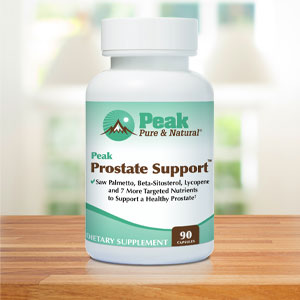Get Easy Health Digest™ in your inbox and don’t miss a thing when you subscribe today. Plus, get the free bonus report, Mother Nature’s Tips, Tricks and Remedies for Cholesterol, Blood Pressure & Blood Sugar as my way of saying welcome to the community!
5 great things about pumpkin seeds

I love it here in the Northeast, when the cold nights, shorter days and changing leaves signal fall.
I also love it when my local grocers and markets start offering my favorite fall treat…
Pumpkins.
Well, pumpkin seeds, to be specific.
When I was a kid, we used to go to the corner candy store and buy little red boxes of pumpkin seeds. We would pop them by the handful and suck the thick layer of salt off of the shells until our extreme thirst made us stop and guzzle some water or other drink.
Knowing what I know today about salt, I’d opt for the natural, unsalted variety. (Don’t get me wrong — salt is an important part of your diet, but most of us get way too much.)
And anyway, pumpkin seeds don’t need a coating of processed salt to be tasty.
Let me tell you why these little seeds are so good for you, and why they should be part of your diet, not only each fall but year-round…
Vitamins, minerals and benefits galore
When you clean out your Halloween pumpkin and drop those clumps of seeds into the trash (or, hopefully, the compost), you probably wouldn’t guess how much health and wellness you’re throwing away.
Here are five health benefits to be gained by munching on roasted pumpkin seeds (and, they are a delicious snack!)…
Tons of nutrients. A one-ounce (28g) serving of pumpkin seeds has 1.7g of fiber and 7g of protein.
It also offers a healthy portion of the recommended daily intake of a bunch of vitamins and minerals:
- Vitamin K 18%
- Phosphorous 33%
- Manganese 42%
- Magnesium 37%
- Iron 23%
- Zinc 14%
- Copper 19%
High in antioxidants. In one study, pumpkin seed oil reduced inflammation in rats with arthritis without side effects, while animals given an anti-inflammatory drug experienced some unpleasant side effects.
High in Magnesium. Pumpkin seeds are rich in magnesium. Healthy magnesium levels are important for blood pressure and blood sugar levels, as well as heart and bone health.
Research shows that up to 75 percent of Americans are deficient in this vital mineral. Heart problems, stroke, asthma, and migraines can result from a magnesium deficiency, not to mention the constellation of ailments known as metabolic syndrome.
Help for an overactive bladder. A 12-week study found that pumpkin seed oil extract significantly reduced overactive bladder symptoms. Other studies have shown it helps support prostate health and relieves BPH symptoms, like frequent nighttime urination.
Better sleep. Pumpkin seeds are a natural source of tryptophan, an amino acid that can help promote sleep. They also have plenty of zinc, which helps convert tryptophan to serotonin which is then converted to melatonin, the hormone that regulates your sleep cycle.
How to roast your pumpkin seedsTo
In order to enjoy munching on those seeds, you’ll want to roast them first. That’s not hard to do.
Just preheat your oven to 300°, then toss the seeds in a bowl with some melted butter or, better yet, extra-virgin olive oil and a pinch of salt.
Spread them on a baking sheet in a single layer and bake for about 45 minutes or until they’re golden, stirring them occasionally.
Editor’s Note: You’re invited to join a tiny handful of Americans who enjoy rare, fresh-pressed olive oil all year long that can’t be found in grocery stores or specialty shops. Take my word for it, there’s a difference in taste, quality and benefit! Click here to learn more…
Sources:
The potential of pumpkin seeds as a functional food ingredient: A review — Science Direct
Effect of pumpkin-seed oil on the level of free radical scavengers induced during adjuvant-arthritis in rats — Pharmacological Research
Antioxidant and lipoxygenase inhibitory activities of pumpkin seed extracts — Food Research International














